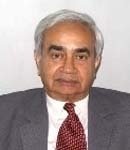Limited War against the Nuclear Backdrop
18 Jun, 2002 · 768
PR Chari argues that urging limited war in a nuclear environment is unwise, irrational and irresponsible
George Fernandes has expressed confidence in winning a limited conflict with
Pakistan
even if the nuclear threshold was crossed since: “We could take a strike, survive and then hit back.
Pakistan
would be finished. I do not really fear the nuclear issue would figure in a conflict”. To what extent
India
might be destroyed – one-fourth, one-third, one-half, was not clarified by him; that
Pakistan
would be wholly annihilated informed his confidence that it would never initiate a nuclear exchange. He was encouraged, it seems, by the Indian military. The Times (
London
) quoted him as saying, “Everyone is raring to go. In fact, something that actually bothers them [Indian military] is that things might now reach a point where one says there is no war.”
India
has declared a no-first-use doctrine, and would not initiate a nuclear exchange but only use nuclear weapons if it were attacked by them.
Pakistan
is not constrained by such inhibitions. Its planners have declared that
Pakistan
would use its nuclear weapons first, if necessary, since it is the weaker conventional power and needs to defend against being overwhelmed by
India
’s more powerful armed forces. Proceeding on this logic
Pakistan
has repeatedly flaunted its nuclear weapons, particularly in times of crisis. Its Railway Minister, Javed Ashraf Qazi, recently warned that
Pakistan
would use its nuclear weapons if its survival were threatened, as did its Permanent Representative to the United Nations, Munir Akram. Its recent missile test series was also guided by this logic; it signaled to
India
and the world that, in extremis,
Pakistan
would rely on its nuclear missiles to ensure its security.
South Asia
.
India
’s ruling class, armed forces and the strategic chatterati in
New Delhi
? George Fernandes asserted in a conference some two years back that
Pakistan
“had not absorbed the real meaning of nuclearisation; that it can deter only the use of nuclear weapons, but not all and any war…conventional war remained feasible though with definite limitations.” It should be recognized that deep frustration underlies such perceptions. The reciprocal nuclear tests conducted by
India
and
Pakistan
in May 1998 have narrowed, rather than enlarged,
India
’s military options. In truth,
India
’s security has worsened after it became an overt nuclear power; however, the concerned official and non-official communities find this verity hard to accept. Hence their urging of new and risky modalities to assert India’s strategic “superiority” over Pakistan by asserting that a limited war against Pakistan could be victoriously fought.
India
fights this limited war? This could include operations using Special Forces (commando units), launching ground and air attacks along the border, undertaking “hot pursuit” across the Line of Control, and so on.
Pakistan
could retaliate likewise, but the pious hope remains that it would not escalate the conflict, and not cross the nuclear threshold. Three problems with this process of ratiocination must be highlighted.
Pakistan
may not keep the conflict limited and non-nuclear if it finds itself in danger of losing its significant assets.
India
’s strategic goals in a limited conflict? Keeping them too modest would yield no political dividends. Pitching them too high could lead to the conflict spinning out of control.
Pakistan
’s military leadership has been irrational and irresponsible in the past. Why should they be rational and responsible to wage a carefully calibrated limited conflict?
India
has much to lose and little to gain by testing it at any time.
En passant, it might be noted that
Can a limited war be fought in this vitiated atmosphere, since war, by its intrinsic nature, is an uncontrolled affair? Should the limitation be in terms of space or time or weapons used? Can war be fought in accordance with mutually agreed rules? Like a game of chess. This manner of thinking is unrealistic. Strategic man, after all, is the logician’s dream, but difficult to find in the real world of politics and passion and uncertainty. In fact, the logical difficulty in urging that a limited conflict against the nuclear backdrop could be limited proved insurmountable. In time, the concept faded away. It has now returned to begin the fashion in
Why then does this belief inform
How do these constituencies suggest
· First,
· Second, what could be
· Third, history informs that
There are no credible answers to these several vital questions. One is driven therefore to the irresistible conclusion that limited war in a nuclearized environment is unwise, and that urging its feasibility is irrational and irresponsible. Hopefully, this hypothesis will not be tested, since


